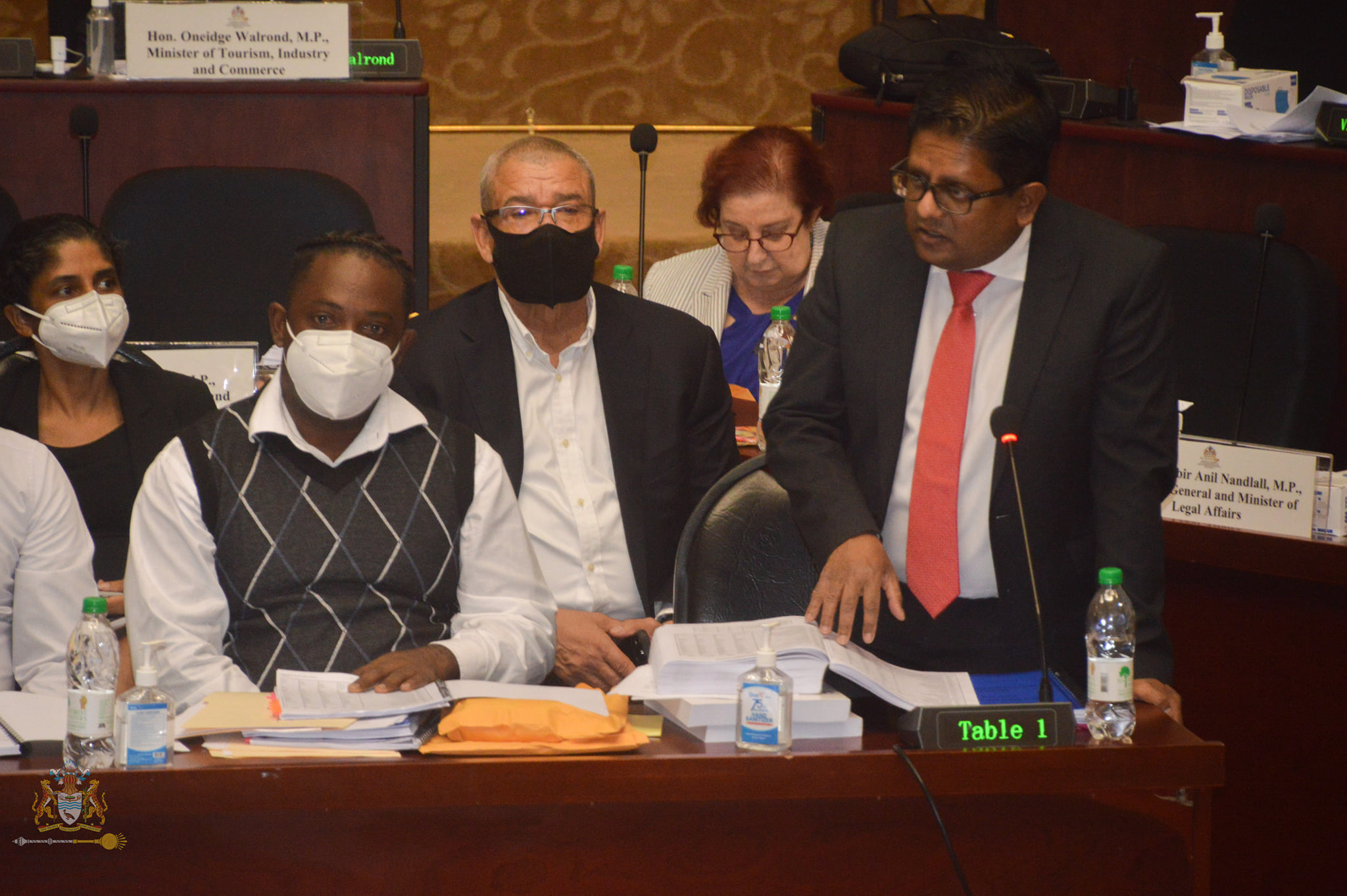Unlike 2021, the 2022 national budget was passed on Thursday with full participation from the APNU+AFC parliamentary opposition.
Last year, the opposition walked out of the consideration of estimates hours after it started and despite a resignation, suspension, and several apologies this year, opposition MPs participated to the end.
Many abstained on the final vote which just a few shouting “no” albeit with the full understanding that the government held the majority to pass the fiscal plan.
Supporting the budget’s passage is also the passage of the Appropriation Bill and the Fiscal Enactment Amendment Bill.
The Fiscal Enactment Amendment Bill is intended to amend the legislation pertaining to the various tax statutes which required amendments for the purposes of giving effect to the measures included in Budget 2022.
The government will now move forward to execute its projects under the $552.9 billion fiscal plan which for the first time is supported by oil funds.
Presented on January 26, 2022 by Finance Minister Dr. Ashni Singh, Parliamentarians spent five days debating the budget where the opposition offered their criticisms.
And then, an additional four days was spent considering the estimates in the Committee of Supply where the allocations for several agencies and government ministries came under intense scrutiny and critical examination.
The Motion that was moved by Speaker of the National Assembly Manzoor Nadir on Thursday outlined a a total sum of $501 billion as estimates of expenditure excluding $51 which is chargeable by law.
Included in the total $552.9 is $11.7 billion for constitutional agencies and another $126. 6 billion will be withdrawn from the Natural Resource Fund – where the oil revenues are kept – providing just about 20% budgetary support.
Key measures in Budget 2022 include a strong focus on Local Content and Job Creation especially in keeping with the December 2021 Local Content Act passed in the National Assembly, support for renewal of the industrial and commercial transport fleet, Removal of 14 % VAT from cranes, safety equipment and oil spill response equipment, Removal of 2 percent withholding tax on resident contractors to reverse the punitive measures implemented by the previous Administration, Easing the Cost of Living through the extension of the application of the freight cost adjustment for the calculation of import taxes, a further excise tax rate reduction on gasoline and diesel from 20 percent to 10 percent, Support for the vulnerable through the introduction of a Dialysis Support Programme to finance treatment for dialysis patients, an increase in the monthly Public Assistance payment from $12,000 to $14,000, an increase in Old Age Pension from $25,000 to $28,000, increasing disposable income through a $25,000 ‘Because We Care’ cash grant for each child attending both private and public school and an increase in the monthly income tax threshold from $65,000 to $75,000.
Here are some other highlights:
$76.7 billion was approved for roads and bridges
Education saw $74.4 billion budgeted for the sector
$73.2 billion was approved for the health sector
$47.9 billion was allocated for public safety and security
$29.4 billion was approved to advance the transition to cleaner energy sources
$12.4 billion is allocated for the housing sector to continue infrastructure works in housing areas
Budget 2022 provides $4.9 billion to improve the water sector
$4.7 billion was approved for the advancement of the justice sector
$3.1 billion approved for core Amerindian development programmes
$2.2 billion allocated for development of sports
$1.3 billion budgeted to directly support culture and arts












